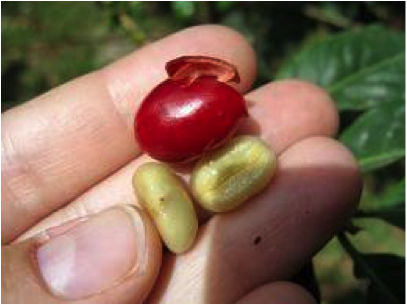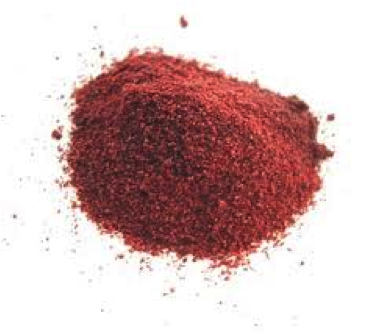- Home
- Our story
- Nutrition Quickies
- Products
- Ingredients
- Articles
- Success Stories
- Contact Us
- Timeless Radiance
- JayLab Pro Prosta-7
- BloodFlow Guardian
- VG-6
- Ultimate Sleep Solution
- Fermented Turmeric
- Collagen Complex
- Ultra-Cleanse Detox
- Krill oil
- Probiotics
- Advanced Joint Support
- Gluco Guardian
- Multi-vitamin (Active Core Complex)
- Renewal for men (T20)
- Protein powder
- Combo-packs
- Login
5 Health Benefits Found In Your Morning Coffee
By Kevin DiDonato MS, CES
 Coffee lovers…
Coffee lovers…
It’s time to rejoice! All those people who have told you drinking coffee is BAD for your health, well, they need to think again!
Coffee, in all its glory, could be one of the healthiest drinks around.
That is, if you cut out the high levels of sugar and the boatloads of cream.
The simple fact is: Coffee is brimming with nutrition, a fact that countless research studies have proven.
So, what are the exact health benefits of coffee?
Let’s take a look:
1. Hold a Ton of Antioxidants
Antioxidants are powerful molecules that combat the damage from free radicals in the body.
They play an important role in lowering inflammation levels, keeping cells healthy and free from damage, and keeping arthritis, cancer, and other inflammatory diseases at bay.
So what does coffee have to do with antioxidants? Tons!
According to a study, coffee may be the number one source of antioxidants in the US!
2. Reduce the Risk for Death from Heart Disease
 Are you worried about having a heart attack? Dying from a stroke? Perhaps you're concerned about living a life with clogged arteries and cholesterol issues.
Are you worried about having a heart attack? Dying from a stroke? Perhaps you're concerned about living a life with clogged arteries and cholesterol issues.
Well, the good news is: Moderate coffee consumption has been linked to a 20 percent reduction in death risk due to heart disease!
And this has nothing to do with the caffeine found in coffee! The study authors believe that the high antioxidant profile, plus the host of other beneficial vitamins and minerals may be responsible for the reduction in death risk.
3. Could PREVENT Type 2 Diabetes Risk
Statistics show that 29.1 million people have type 2 Diabetes. That’s roughly 9.3 percent of the population in the US.
But what’s worse, 8.1 million living with diabetes don’t even know they have it!
There is good news, however! Countless studies show that regular coffee consumption (three to five cups per day) could lower the risk for developing type 2 Diabetes.
It’s important to note that this is black coffee only—with not additives, sugar, or creamers!
The reason why coffee may be so effective at preventing diabetes could be due to the high magnesium, chlorogenic acid, lignans, and other antioxidants.
The powerful nutrients may reduce insulin resistance and inflammation, which are two keys to the development of type 2 diabetes.
4. Could Prevent Depression
 There are plenty of people who feel blue or fight depression on an everyday basis.
There are plenty of people who feel blue or fight depression on an everyday basis.
But for those who drink coffee—especially women—there may be a significant decrease in the amount of women suffering from depression.
A study performed by Harvard’s School of Public Health, showed that women who drank FOUR or more cups of coffee per day had a 20 percent lower risk for developing depression.
And men are no different! A different study looking at men, showed that regular coffee consumption may also lower depression risk..
5. Could Prevent Parkinson’s Disease
Parkinson’s disease is a progressive disorder of the nervous system that lowers dopamine levels in the brain and leads to movement control issues and tremors.
This disease, which has gotten a lot of public awareness thanks to Micheal J. Fox, slowly destroys the dopamine levels in the brain, which makes it hard for sufferers to control movements normally.
Coffee, not a cure-all by any means, may reduce the risk for the development of Parkinson’s Disease.
Countless studies have shown a dose-dependent relationship (the more you have the lower the risk) between coffee consumption and the development of Parkinson’s disease.
Take Home Message
Coffee is one of the most consumed beverages around the world.
And for good reason! Coffee contains plenty of antioxidants, vitamins, minerals, and other nutrients that may provide a whole host of benefits to you.
From reducing your risk for heart disease to preventing depression and Parkinson’s disease, moderate coffee consumption may actually improve your health.
Before you start drinking coffee, however, the benefits have been found by drinking plain, black coffee.
The added sugar, creamers, artificial sweeteners, and other additives may decrease the health benefits found in coffee.
If you’re interested in improving your health, think about adding coffee to your daily nutrition plan!
References:
Lucas M, Mirzaei F, Pan A, Okereke OI, Willett WC, O’Reilly EJ, Koenen K, Ascherio A. Coffee, Caffeine, and Risk of Depression Among Women. Arch Intern Med. 2011;171(17):1571-1578.
Ding, M, Satija A, Bhupathiraju SN, Hu Y, Sun A, Han J, Lopez-Garcia E, Willett W, van Dam RM, Hu FB. Association of Coffee Consumption with Total and Cause-Specific Mortality. Circulationaha. Doi:11.1161/CIRCULATIONAHA.115.017341.
Ross GW, Abbott RD, Petrovitch H, Morens DM, Grandinetti A, Tung KH, Tanner CM, Masaki KH, Blanchette PL,
Curb D, Popper JS, White LR. Association of Coffee and Caffeine Intake With the Risk of Parkinson Disease. JAMA. 2000;283(20);2674-2679.
van Dam RM, Willett WC, Manson JE, Hu FB. Coffee, Caffeine, and Risk of Type 2 Diabetes. Diabetes Care 2006 Feb;29(2):398-403.

